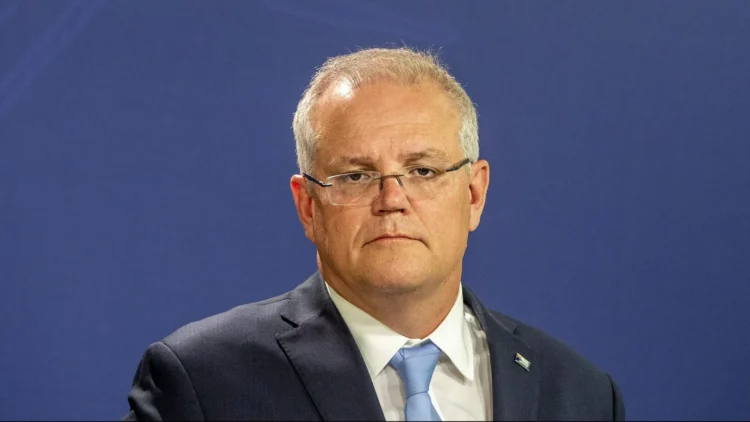By Martin Cole-
Australian Prime Minister Anthony Albanese(pictured) has announced a year-long inquiry into Australia’s response to the COVID-19 pandemic.
This inquiry is set to provide a comprehensive evaluation of the federal and state governments’ handling of the pandemic, marking a crucial step towards understanding the country’s response to the unprecedented global health crisis.
Critics say the absence of a royal commission from the inquiry already highlights the tendency of a biased process that will fail to adequately probe the state lockdowns and school closures.
Mr Albanese repeatedly raised the idea of an inquiry in the lead up to the federal election but sometimes provided wriggle room over whether it could be an inquiry or a royal commission.
Since the pandemic’s outbreak in January 2020, Australia has faced numerous challenges and made significant decisions to safeguard public health.
The initial response, characterized by stringent international border closures and quarantine measures, kept infection numbers relatively low during the first wave in 2020.
However, the subsequent years witnessed interstate border closures, business shutdowns, school closures, and repeated lockdowns across the nation.
Melbourne, in particular, endured six lockdowns totaling 262 days from March 2020 to October 2021. These measures aimed to contain the virus’s spread but also took a toll on citizens’ daily lives and the economy.
Federal health data, reported to the World Health Organization, shows that Australia has reported more than 11.5 million confirmed COVID-19 cases and nearly 23,000 deaths between January 2020 and mid-September 2023. The Omicron wave, which began in December 2021, accounted for approximately 11.3 million of these cases.
Unveiling the Inquiry
Prime Minister Albanese’s announcement of the inquiry is a momentous step toward a comprehensive assessment of Australia’s pandemic response. While the inquiry will not take the form of a royal commission, it is expected to have extensive powers to call witnesses and examine various facets of the government’s response.
Health Minister Mark Butler will join Albanese in releasing the inquiry’s terms of reference. A team of medical and economic experts will lead the inquiry, ensuring a thorough and unbiased evaluation.
Three state premiers and chief ministers—Daniel Andrews of Victoria, Annastacia Palaszczuk of Queensland, and Andrew Barr of the Australian Capital Territory—have been at the helm of their governments since the pandemic’s inception. Their experiences and contributions will be invaluable in assessing the country’s response.
The Quest for Accountability
Former Prime Minister Scott Morrison, who led Australia during the initial stages of the pandemic, has expressed his willingness to cooperate with the inquiry.
However, he emphasized the need for the inquiry to examine the roles and actions of both state and federal governments, shedding light on the complexities of decision-making during the crisis.
Morrison’s call for state and territory officials to appear before the inquiry underscores the importance of a comprehensive review. The pandemic response was a collaborative effort between various levels of government, making it essential to understand the dynamics and interactions that shaped Australia’s strategy.
A Multifaceted Inquiry
While this national inquiry is the most expansive review of Australia’s pandemic response to date, it is not the first examination of its kind. Independent and academic investigations have previously explored specific policies and aspects of the response.
For example, a report funded by the Paul Ramsay Foundation, led by former Prime Minister Peter Shergold, provided recommendations to enhance preparedness for future pandemics and promote the involvement of experts.
Another study led by economists Steven Hamilton, Tristram Sainsbury, and Geoffrey Liu examined the early withdrawal of the superannuation stimulus policy, revealing how it affected Australians’ financial decisions.
Looking Forward
As the inquiry takes shape, there is a consensus among experts and stakeholders that its terms of reference should focus on preparing for future challenges.
The examination should not devolve into a blame game but rather emphasize proportionality in Australia’s disease control response.
With an aging population and increasing risks from issues like vector-borne diseases and supply chain disruptions due to climate change, the country’s health future is becoming more complex. The inquiry should consider these evolving challenges and ensure that public policy is robust and forward-looking.




